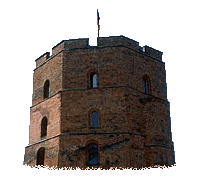

Posted by elektratig [ 205.188.116.14 ] on February 14, 2005 at 22:16:37:
In Reply to: Re: Little Known Civil War Fact posted by manualblock on February 14, 2005 at 19:18:48:
MB,
You're absolutely right -- logistics were crucial. The sizes of the armies -- 40,000 to 60,000 to 100,000 or more men -- were unprecedented. Just keeping them armed, clothed, supplied, fed and reasonably healthy was a tremendous task.
It's amazing how many survived their wounds, including amputations. Among the generals, both Richard Ewell and John Bell Hood survived wounds that required amputation of a leg close to the hip, perhaps to the detriment of the Confederacy. Probably the most famous victim of sepsis/pneumonia was Stonewall Jackson. After being shot by "friendly fire" on the evening following his greatest victory, he had his arm amputated and seemed to be recovering, but then relapsed and died, apparently due to pneumonia.
Surprisingly, the experts seem to believe that the blockade contributed little to the Union victory. It's an area I don't know a lot about and want to learn more.
Washington was fortified, much as Richmond-Petersburg were. As I'm sure you know, much of the Eastern (Virginia) war was fought in northern Virginia, not all that far from Washington -- First and Second Manassas, Fredicksburg, Chancellorsville, the Wilderness. Even Sharpsburg (Antietam) and Gettysburg are not all that far away. There were only a few Confederate direct approaches to Washington, however, because (apart from political scare value) they served little purpose, although the threat of attack did tie up 20,000 - 50,000 troops covering the city. As late as July 1864, when the Army of the Potomac was beginning its siege of Richmond-Petersburg, Lee detatched a corps that marched to the gates of Washington but then turned back because it could not successfully attack the city (due to the defenses, reinforced by a Corps sent by Grant from the Richmond theater).
George Meade assumed command of the Army of the Potomac from Joe Hooker days before Gettysburg (July 1-3, 1863). When Grant took command of the armies in March 1864, Meade offered to resign. Grant, impressed, declined the offer, and Meade remained in command of that Army through the end of the war. He performed extremely well at Gettysburg -- amazingly so in view of the fact that he had just assumed command and had been told little of what was going on by Hooker -- and for that we all owe him a debt of gratitude, but he was not an "offensive" general and his performance was mediocre at best thereafter. During the Overland Campaign (the May - June 1864 campaign that resulted in the siege of Richmond), Grant increasingly took over operational control of the Army of the Potomac.
By late March 1865, when the Petersburg defenses collapsed, Phil Sheridan was unoffically in charge as Grant's most trusted confidant and spearheaded the drive to Appomatox. Meade was ill and followed along in an ambulance and was not present at the surrender.
[ Tower Forum ] [ Help ]